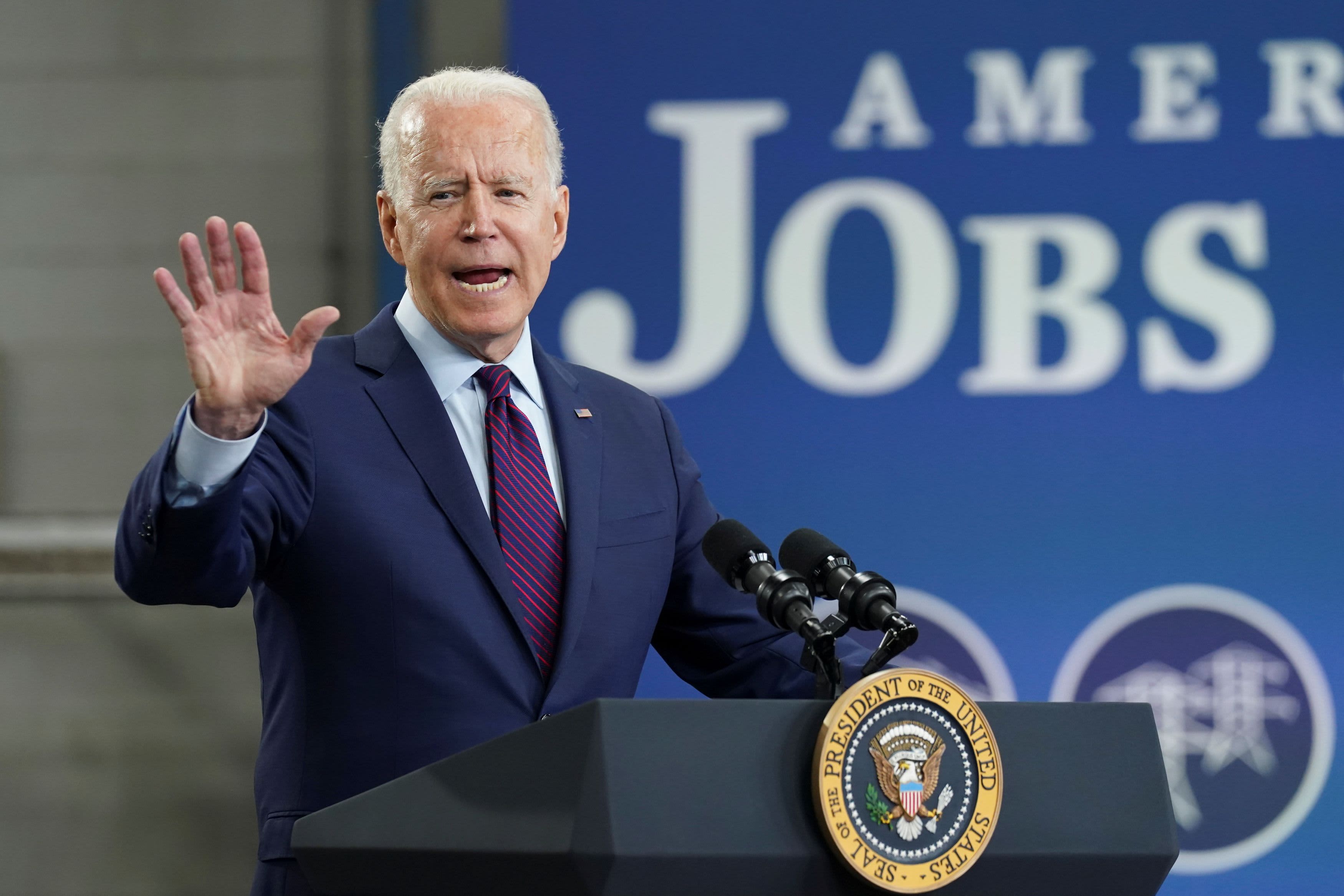A failed Senate test vote dealt a blow to the bipartisan infrastructure framework, but the plan could have a chance to move forward again as soon as Monday.
The Republicans working to craft the $1.2 trillion proposal voted Wednesday against advancing it as they draft final legislation. Despite the setback, the 22 Democratic and GOP senators drawing up the plan said they hope to release and push ahead with a bill “in the coming days.”
The vote leaves President Joe Biden‘s top legislative priority in flux. If the bipartisan deal to revamp transportation, broadband and utilities falls apart, Democrats will have to consider whether to pair physical infrastructure plans with their separate $3.5 trillion package to address climate change, child care and health care.
Biden considers both plans critical to boosting the economy and preparing the country to face a warming planet. Asked Wednesday during a CNN town hall, Biden said he believes the Senate will vote Monday to advance the bipartisan framework he negotiated with senators.
“It’s a good thing, and I think we’re going to get it done,” he said.
Democrats have undertaken a tricky strategy to get both planks of their agenda through Congress. They aim to pass the physical infrastructure plan with Republican votes, then expand the social safety net without GOP support.
Senate Majority Leader Chuck Schumer, D-N.Y., has said he wants to make progress on both fronts before the chamber leaves Washington in August. He aims to pass the bipartisan infrastructure plan and approve the budget resolution that would allow Democrats to get their bill through the evenly split Senate with a simple majority.
“My colleagues on both sides should be assured: as majority leader I have every intention of passing both major infrastructure packages: the bipartisan infrastructure framework, and a budget resolution with reconciliation instructions, before we leave for the August recess,” he said Thursday.
House Speaker Nancy Pelosi, D-Calif., has said she will not take up either bill until the Senate passes both.
Democratic leaders need to keep at least 10 Republican senators on board for the bipartisan plan to pass. They also cannot lose a single Democratic vote in the Senate to pass their bill through the budget reconciliation process. It means appeasing red state centrists and progressives alike.
Some Republicans have balked at Democrats’ plans to take up their $3.5 trillion package along with the bipartisan infrastructure plan, jeopardizing the passage of both proposals.
Asked Thursday morning if the physical infrastructure bill and aspects of Biden’s American Families Plan are still linked, Transportation Secretary Pete Buttigieg offered an oblique reply.
“Well it wasn’t linked yesterday. Right? The vote they took in the Senate was on the infrastructure piece,” Buttigieg said on CNBC’s “Squawk Box.”
“I hear a lot of this talk about whether it’s linked or whether it’s paired. But nobody’s been able to explain to me in clear terms exactly what that even means,” he added. “I think this is more of a kind of an art than science. Frankly, that’s more about the politics that different members have to worry about.”
Ohio Sen. Rob Portman, the lead Republican negotiator in the bipartisan group, has said Democrats’ plans to move forward with the reconciliation measure will not affect his support for the infrastructure bill.
“Well, it’s not linked, not just with regard to the negotiators, but with regard to the White House and with regard to our leadership over here,” he told CNBC on Wednesday. “It’s totally unlinked. It has nothing to do with one another. They’re going to go ahead with reconciliation no matter what, Joe. And they always were, and we understand that.”
Portman said he thinks “we’ll be ready to go” with the bipartisan plan on Monday.
Several measures show the U.S. economy has made a robust recovery from the Covid-19 pandemic. The leisure and hospitality industry has rehired millions of chefs, bartenders and service staff, travel demand has sparked a rally in oil and gas prices, and politicians on both sides of the political aisle are worried about broader inflation.
Other metrics, such as the Labor Department’s report on jobless claims, remain perplexing and suggest a slower rebound in the U.S. jobs market.
The department said Thursday that first-time filings for unemployment insurance totaled 419,000 for the week ended July 17, well above the 350,000 Dow Jones estimate and more than the upwardly revised 368,000 from the previous period.
